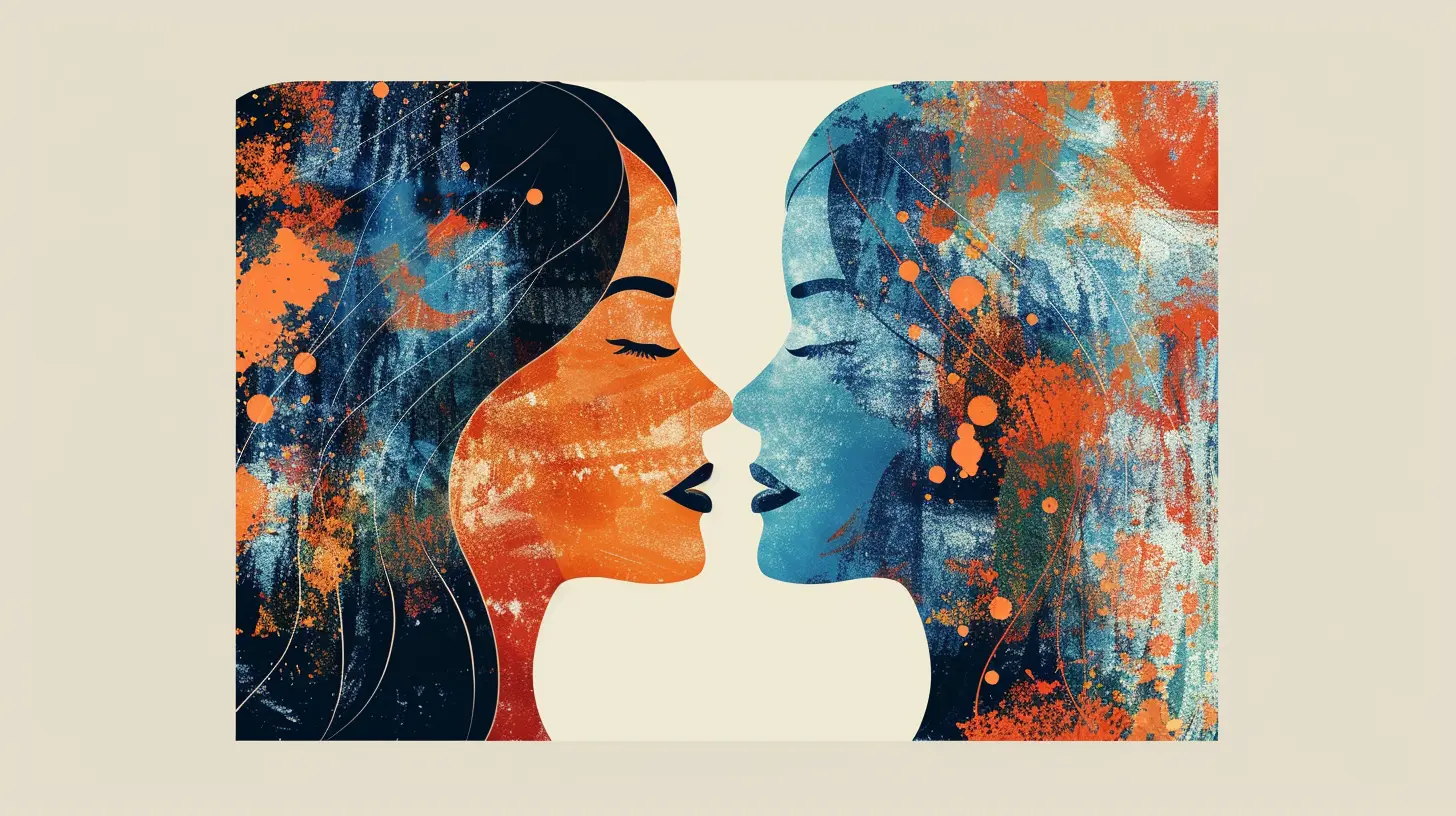How to Support a Friend Facing Mental Health Stigma
11 April 2025
Mental health struggles are tough enough on their own, but when stigma enters the picture, it makes things even harder. If your friend is facing mental health stigma, they may feel isolated, judged, or even ashamed of something they have no control over. As a friend, you have the power to support them in a way that makes a real difference.
Let’s dive into how you can be there for them, break the stigma, and ensure they feel valued and heard.

Understanding Mental Health Stigma
Before you can effectively support your friend, it’s important to understand what stigma really is. Mental health stigma refers to the negative attitudes, beliefs, and discrimination directed toward individuals dealing with mental health conditions. It can come from society, workplaces, family members, or even the media.Stigma can make someone feel:
- Ashamed of their struggles
- Afraid to seek help
- Unworthy of understanding or empathy
- Misunderstood or alone
Your role as a friend isn’t to fix their problems but to create a safe space where they don’t feel judged. 
1. Listen Without Judgment
One of the simplest but most powerful things you can do is listen. And not just the “uh-huh, I hear you” kind of listening—really listen.When your friend opens up about their mental health, resist the urge to give advice or dismiss their feelings. Instead, say things like:
- “That sounds really tough. I’m here for you.”
- “I may not fully understand, but I want to support you.”
- “You’re not alone in this.”
Avoid phrases like:
- “It’s all in your head.”
- “Just think positive!”
- “Everyone goes through hard times.”
These comments, even if well-intended, can make someone feel like their struggles aren’t valid. 
2. Educate Yourself on Mental Health
Supporting your friend means arming yourself with knowledge. Spend some time reading about mental health conditions, stigma, and how these challenges affect people.Some great resources include:
- Mental Health America (MHA) – https://www.mhanational.org/
- National Alliance on Mental Illness (NAMI) – https://www.nami.org/
- World Health Organization (WHO) – https://www.who.int/
By educating yourself, you’ll be better equipped to avoid misconceptions and offer genuine support to your friend. 
3. Speak Up Against Stigma
Ever heard someone joke about therapy, call someone “crazy,” or say depression is just being lazy? These are examples of stigma in everyday conversations.As a good friend, challenge these harmful ideas when you hear them. Try saying:
- “Actually, mental illness is a real medical condition.”
- “I know someone struggling with this, and it’s not just in their head.”
- “Getting help for mental health is just as important as going to a doctor for a physical illness.”
By standing up against stigma, you’re not only helping your friend but also creating a more accepting world for everyone.
4. Respect Their Boundaries
Sometimes, your friend might not want to talk about what they’re going through, and that’s okay. Don’t push them to open up if they’re not ready.What you can do is:
- Let them know you’re always there when they need you.
- Check in with simple texts like “Thinking of you. No need to reply, just want you to know I care.”
- Offer low-pressure hangouts, like watching a movie or grabbing a coffee.
Respecting their space while still showing you care is a delicate balance, but it makes a world of difference.
5. Encourage Professional Help (Without Pressure)
Your support is invaluable, but you're not a therapist. If your friend is struggling, encourage them to seek professional help—but don’t force it.Try saying:
- “Therapy has helped so many people. If you ever want to explore that, I can help you find someone.”
- “There’s no shame in talking to a professional—mental health is just like physical health.”
- “You deserve support, and there are people trained to help.”
If they resist, don’t push. Just let them know you’re there whenever they’re ready.
6. Be Patient and Consistent
Mental health struggles don’t have a quick fix. Some days your friend may seem fine, and other days they may be distant, upset, or irritable. Supporting them means being there consistently—not just when it’s easy.- If they cancel plans, don’t take it personally.
- If they don’t reply to texts, check in later without pressure.
- If they seem down, remind them they’re important to you.
Think of support like watering a plant—it needs steady care, not just attention when it looks like it’s dying.
7. Lead By Example
One of the best ways to fight mental health stigma is to be open about mental health yourself. Normalize conversations about anxiety, stress, and therapy in your own life.Say things like:
- “I’ve been feeling stressed lately, and I think I need to take better care of my mental health.”
- “Therapy really helped me during a tough time.”
- “Taking a mental health day should be just as normal as taking a sick day.”
When we make mental health a normal topic, we break the stigma not just for our friends, but for everyone around us.
8. Offer Small Acts of Kindness
Sometimes, the little things make the biggest impact. A thoughtful gesture can remind your friend that they’re not alone.Try:
- Sending a funny meme or uplifting message
- Dropping off their favorite snack
- Writing a heartfelt note
- Inviting them for a casual walk or coffee
Kindness doesn’t have to be grand—just intentional.
9. Take Care of Yourself Too
Being a supportive friend is important, but don’t forget to check in with yourself. Supporting someone with mental health struggles can be emotionally taxing.Set boundaries when needed and allow yourself to step back if it’s becoming overwhelming. You can’t pour from an empty cup, so prioritize your own mental health as well.
Final Thoughts
Supporting a friend facing mental health stigma isn’t about fixing them—it’s about standing beside them, making them feel seen, and ensuring they know they’re not alone. Whether it’s listening without judgment, challenging stigma in conversations, or simply offering a kind word, your support can be a lifeline.At the end of the day, being a good friend isn’t about having all the answers—it’s about showing up, without judgment, with an open heart.
all images in this post were generated using AI tools
Category:
Mental Health StigmaAuthor:

Ember Forbes
Discussion
rate this article
4 comments
Candice Henson
Thank you for shedding light on such an important topic. Supporting friends facing mental health stigma is crucial, and your insights are valuable. It’s a reminder that compassion and understanding can make a significant difference in someone’s life. Let’s continue to foster open conversations and break down barriers.
May 12, 2025 at 4:24 PM

Ember Forbes
Thank you for your thoughtful comment! I completely agree—compassion and open dialogue are vital in supporting those facing mental health challenges. Let's keep the conversation going!
Zadie Wilkerson
Supporting a friend facing mental health stigma requires empathy, active listening, and validation of their experiences. Encourage open dialogue, educate yourself about mental health, and challenge stigmatizing beliefs in social settings. Your support can empower them and foster a more accepting environment.
April 20, 2025 at 4:57 PM

Ember Forbes
Thank you for your insightful comment! Empathy and open dialogue truly make a difference in supporting friends facing mental health stigma.
Odessa Wood
Supporting a friend facing mental health stigma is a powerful act of solidarity. Your empathy and understanding can break barriers and foster a safe space. Together, let’s champion vulnerability, challenge misconceptions, and create a world where mental health is embraced, not shamed.
April 15, 2025 at 3:12 AM

Ember Forbes
Thank you for emphasizing the importance of empathy and solidarity in supporting friends with mental health challenges. Together, we can make a meaningful difference in breaking stigma and fostering understanding.
Zariah Hurst
In a world where shadows cloak understanding, the true challenge lies not just in combating stigma, but in illuminating the path to empathy. What if your support held the power to unveil hidden struggles and spark transformative healing? Dare to explore.
April 13, 2025 at 2:29 AM

Ember Forbes
Thank you for your insightful comment! It beautifully highlights the importance of empathy in supporting those facing mental health challenges. Together, we can help bring understanding and healing to light.



